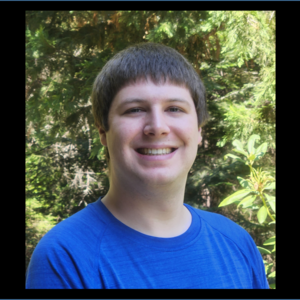
Matthew Ball (University of Oregon) is the winner of the 2022 Award for Excellence in Detector Characterization and Calibration. Matthew is a fifth year Ph.D student at the University of Oregon. He received a Bachelor's degree in Physics from Oregon State University in 2018. As a member of the LIGO Scientific Collaboration's Detector Characterization team, Matthew explored how environmental effects could impact the LIGO detectors and developed methodology to study magnetic field effects due to lightning using LIGO-Virgo as well as external data. He is also interested in gravitational-wave burst searches for isolated neutron stars and what we can learn from them. In his free time, Matthew enjoys hiking around Oregon.
Winner of the 2022 Award for Excellence in Detector Characterization and Calibration Announced
News Release • November 21, 2022
The LIGO Laboratory congratulates Matthew Ball of the University of Oregon for winning this year’s LIGO Laboratory Award for Excellence in Detector Characterization and Calibration. Ball is recognized for his critical role in understanding correlated magnetic noise caused by distant lightning strikes, the only known environmental sources of correlated noise in the LIGO-Virgo-KAGRA gravitational wave detector network. Not only did Matthew conclusively establish the correlation between lightning strikes and magnetic-field sensors at LIGO’s two detectors (in the US) as well as the Virgo detector (in Italy), he found that the frequency of these lightning-driven disturbances overlap with the most sensitive range of the LIGO and Virgo detectors.
Ball’s findings have important implications for future gravitational-wave searches, including searches for mergers of distant black holes and neutron stars, which may be obscured by this noise. Ball’s results are also critical for searches for stochastic gravitational waves, an ever-present source that we would find in all detectors, potentially from violent fluctuations in the early Universe or a steady background of quiet merger signals.
Ball and collaborators also found that lightning strikes induce electric currents in the detectors’ metal beam tubes. This insight may provide important design guidelines for future detectors.
Matthew will receive a $1,000 prize and present an invited seminar at one of the LIGO Laboratory sites (LIGO-Hanford, LIGO-Livingston, Caltech, or MIT) to share his achievements with LIGO Laboratory members. He will also be presented with an award certificate at the next meeting of the LIGO-Virgo-KAGRA collaboration.




